Life
Sign up for our newsletter
We summarize the week's scientific breakthroughs every Thursday.
-
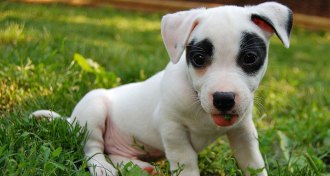
-
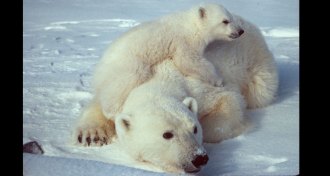 Animals
AnimalsAnimal moms sacrifice a lot — sometimes even themselves
In the animal kingdom, there are bad mothers and good ones — and then there are those that let their kids eat them.
-
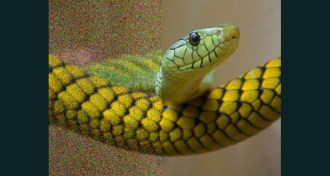 Neuroscience
NeuroscienceA vivid emotional experience requires the right genetics
A single gene deletion gives some people an extra vivid jolt to their emotional experience, a new study shows.
-
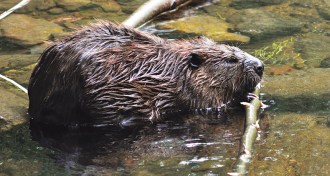 Climate
ClimateFlood planners should not forget beavers
Beaver dams can reduce flooding downstream, new research shows.
-
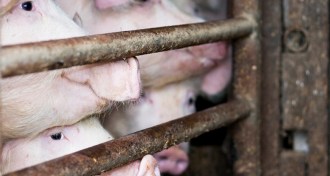 Microbes
MicrobesPig farm workers at greater risk for drug-resistant staph
Pig farm workers are six times as likely to carry multidrug-resistant staph than workers who have no contact with pigs.
By Beth Mole -
 Health & Medicine
Health & MedicineKids who have had measles are at higher risk of fatal infections
Measles infection leaves kids vulnerable to other infectious diseases for much longer than scientists suspected.
By Meghan Rosen -
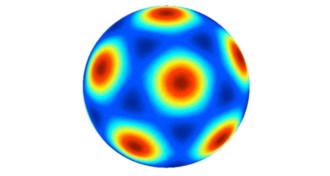 Neuroscience
NeuroscienceBrain’s grid cells could navigate a curvy world
If we ever need to flee a dying Earth on curved space islands — as humanity was forced to do in 'Interstellar' — our brains will adapt with ease, a new mathematical analysis suggests.
-
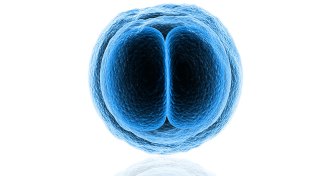 Genetics
GeneticsEditing human germline cells sparks ethics debate
Human gene editing experiments raise scientific and societal questions.
-
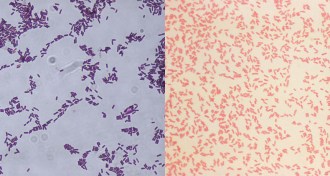 Chemistry
ChemistryBacteria staining method has long been misexplained
New research upends what scientists know about a classic lab technique, called gram staining, used for more than a century to characterized and classify bacteria.
By Beth Mole -
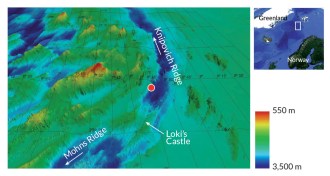 Microbes
MicrobesPossible nearest living relatives to complex life found in seafloor mud
New phylum of sea-bottom archaea microbes could be closest living relatives yet found to the eukaryote domain of complex life that includes people.
By Susan Milius -
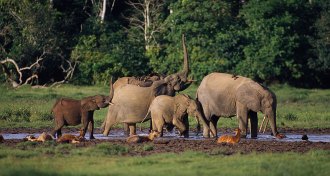 Animals
AnimalsIvory listings found on Craigslist as elephant poaching continues
Elephants are hunted by the thousands to meet demand for ivory products.
-
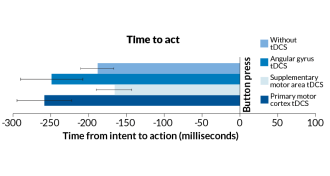 Neuroscience
NeuroscienceStimulating nerve cells stretches time between thinking, doing
A head zap can stretch the time between intention and action.